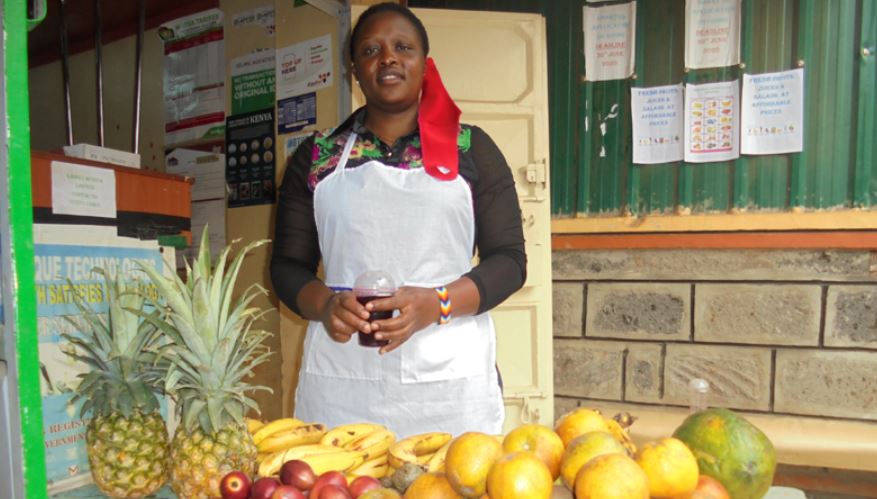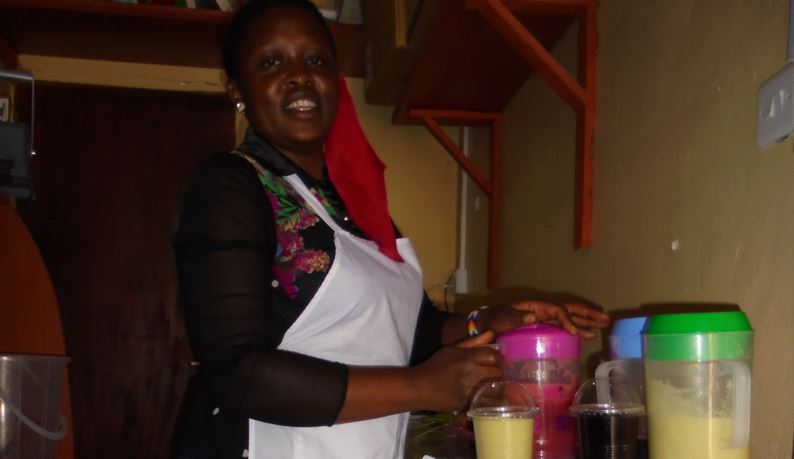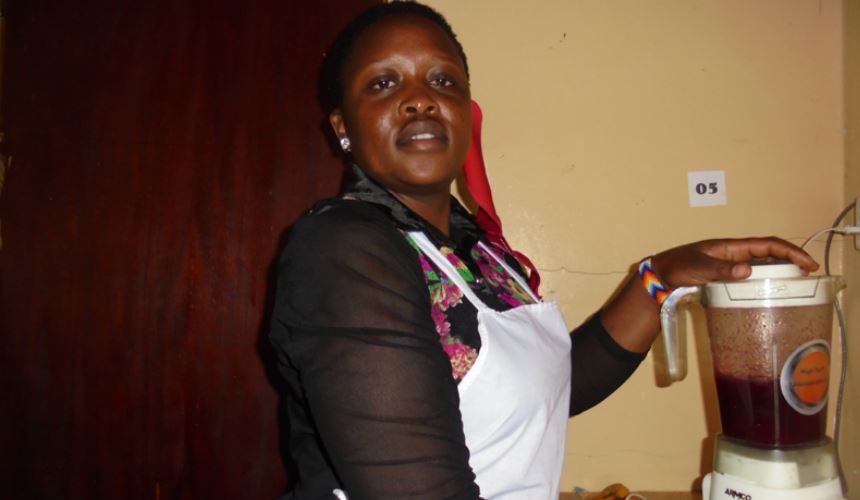 Purity Namalwa Nasilwa is one of many Kenyans who lost their jobs in the wake of the coronavirus pandemic. However, instead of wallowing in self-pity, the 22-year-old ventured into business.
Purity Namalwa Nasilwa is one of many Kenyans who lost their jobs in the wake of the coronavirus pandemic. However, instead of wallowing in self-pity, the 22-year-old ventured into business.
Ms Nasilwa sat her KCSE in 2018 and attained a B (Minus) grade, which earned her admission to Kenyatta University. But the lack of school fees killed her dream in hospitality.
“I had accepted that my life and fate had entered into a coalition to mess me up…Poverty had been hanging around my neck like a guillotine and I had accepted that God’s grace was sufficient for me to enable me to live a day at a time,” she told Nation.
After high school, Nasilwa did casual jobs in food joints in Murang’a town.
“For one and a half years, I earned a living in Mitura (African sausage) and soup joints, earning between Sh100 and Sh200 as daily wages,” she added.
During this period, she also got pregnant.
“It did not come as a surprise to me. When life seems harsh to you, you get psyched that misfortunes are part of life. I found myself looking forward to giving birth and even expecting to get pregnant again. I cared not a damn…Little did I know I was sinking slowly into depression,” said Nasilwa.
Then Covid-19 happened, food joints in Murang’a were closed and she was left jobless.
“Even when Governor Mwangi wa Iria revised the trade sanctions a month later, the damage had already been done since many small businesses had ran out of capital to pay rent and sustain profitability margins,” she says.
With house rent arrears of Sh5, 000 and hunger staring down at her and her baby, Ms Nasilwa had to do something to survive. She sought help from her mum.
“She gave me Sh1,000. It was a sacrifice since she was also experiencing the vagaries of Covid-19-induced financial hardships. My first instinct was to go shopping for food reserves. But wait; and afterwards? The rent arrears were accumulating.
“I cracked my head for a strategy. An inspiration from nowhere struck my head and opened my horizons far and wide. I became aware that there was a market craze that was building about natural fruits touted to be immunity boosters against Coronavirus,” she said, adding: “that was my Eureka moment.”
With the Sh1000, Nasilwa bought food reserves worth Sh300. She used the balance, Sh700 to buy Sh40 avocadoes, Sh50 pineapple, Sh50 bananas, Sh80 beetroots, Sh100 garlic, Sh50 sugarcane and Sh30 tomatoes.
“With Sh300 in hand now, I bought some plastic cups and jugs worth Sh200 and the balance of Sh100 became my cash in hand.”
She then borrowed a juice blending machine from a neighbour and approached a friend who runs a cybercafé along Biashara Street of Murang’a town for a space to display her new enterprise on a small wooden table.
“It must have been God’s favour since, from my starting stock, I made about 3,000ml of assorted juices, all of which were bought at Sh1,500 equivalent to a net profit of Sh900!” she revealed.
“It was too sweet to be true because my sales kept on growing by the day. I have expanded my start-up to include immunity booster Uji (porridge) made of organic tuber flour, smooth and fresh juices, detoxes, puddings and salads,” she said noting that on a bad day, “I’m guaranteed at least Sh600 as profit.”
“My greatest lesson in life out of this Covid-19 experience is that not all calamities are bad…Covid-19 pandemic to me was a blessing in disguise. Again, I have come to realise that there is no small money in the hands of a determined mind to multiply it,” Purity concluded.
Credit: Daily Nation








